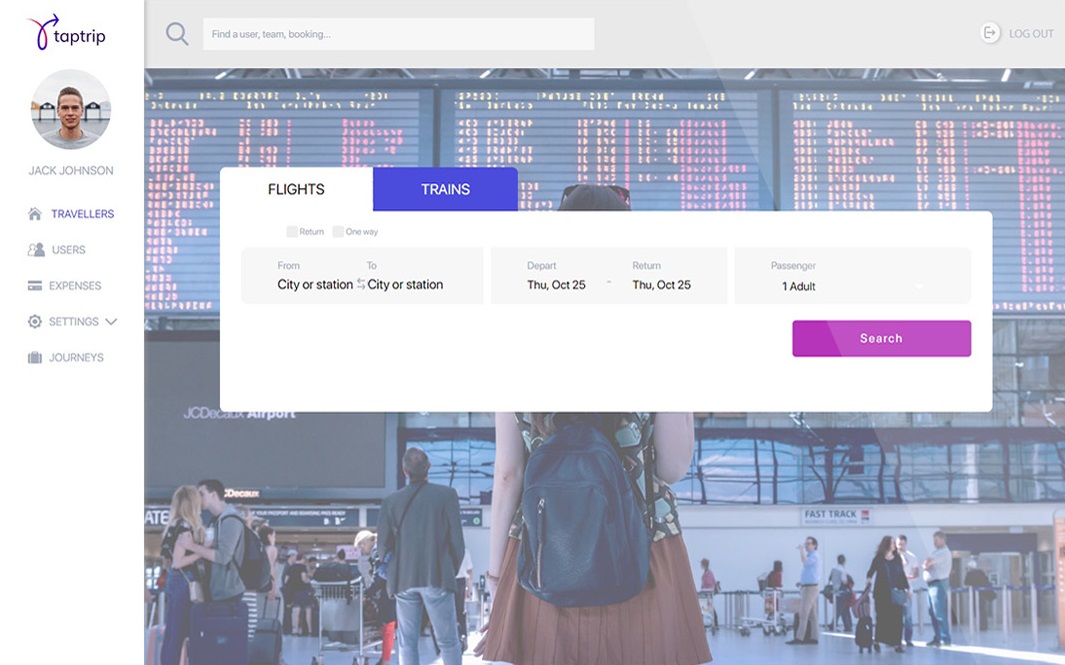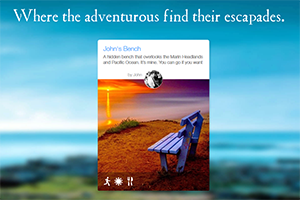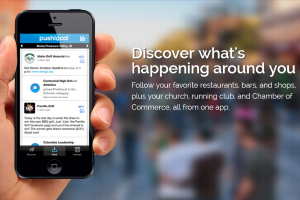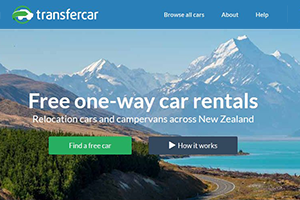Tourism, Hospitality, and Leisure — Outsourcing Essentials
The travel industry is highly competitive, with global brands and hungry startups all fighting to be the provider-of-choice for the largest number of customers. These providers come from a variety of sectors, including transportation, lodging, restaurants, and entertainment.
Tour operators, travel agents, online travel agencies (OTAs), insurance companies, and travel management companies (TMAs) serve as intermediaries between their customers and the providers. These intermediaries provide their customers with information about travel opportunities and guide them to a successful booking.
In such an ambitious industry, competitive capacity can only be maintained through consistent improvement. Sibers introduces innovation as a driving force for refining any business model and attract more customers.
Travel Business IT Solutions
Rich-Featured Website, Booking Option
The popularity of online booking has increased considerably over the last decade. Today, two-thirds of the customers book their travel online, while just 24.3% prefer brick-and-mortar travel agencies. With such a massive move towards online booking, it’s more important than ever for travel service providers to sharpen their online presence.
Today it is not enough to just have a promotional website with static information. Exploring a travel opportunity, customers are looking for trustworthy online services that ensure the latest information and the best prices. Good UI, relevant content, up-to-date reviews, and open feedback are the first steps on the road to a transparent travel website with an intuitive user experience. Think of CMS integration, which allows for creating and updating quality content on your website.
The question of whether or not to have a direct-booking option on your site is worth pondering. According to the latest research, only 21% of travelers book their flights and hotels directly through their provider’s website. The majority go through booking aggregators. However, by employing a smart marketing strategy, some provider websites have achieved a high direct-booking rate and in the process saved up to 15% on the commissions that would normally be paid to aggregators.
Something else to consider is that many providers use channel management for booking. Channel management grants access to distribution sites, booking aggregators, and OTAs and allows the provider to appear on the lists of mainstream aggregators such as Booking.com and Expedia.
Travel Portal Essentials
Intermediaries can turn their existing website into a travel portal or create one from scratch. In either case, the essential development feature is ‘search and book’ API integration. Choosing the right API depends on what you offer your customers. The most common types of API for travel portals are:
- A global distribution system (GDS) for flight, railway, car rental, hotel search, and booking. A GDS acquires data from a variety of large travel service providers and thus offers the widest data coverage. However, this focus on big providers makes a GDS prone to omitting small, growing companies. Additionally, a GDS is usually flight-focused.
- Flight-search-and-booking APIs created online travel agencies. While this isn’t the most popular solution, it’s a reasonable choice for small and startup intermediaries. In fact, there are plenty of OTAs that have developed their own API.
- APIs and switches created by connectivity providers. Unlike with a GDS, connectivity providers get more specific data and thus are more likely to include small and startup intermediaries.
- Direct booking with channel managers
- Flight data and schedule
- Hotel mapping
- Car rental booking
- Business travel management
- Reviews and rating
- Tours and attractions
- Restaurant reservation
- Public transport
Most businesses involved in flight retail will also need to integrate a new distribution capability (NDC) API. Launched by the International Air Transport Association (IATA), an NDC is a data transmission standard for the airlines. It allows an airline’s back office to communicate with intermediaries and sell unique products.
Going Mobile is Essential
Just like online booking, mobile booking is growing too. Today, 48% of U.S. travelers plan and book trips from their mobile phones. Moreover, mobile is the most popular choice for exploring tourist attractions, finding shopping/entertainment areas, and looking up directions. Statistics show that mobile phone users spend over 19 minutes per week on travel apps. And for 2022, mobile booking is expected to increase by 60%. Clearly there is an increasing demand for mobile-friendly travel services – and with the ‘mobile-first approach’ becoming such a key revenue-driver, it’s essential that your travel website is mobile-friendly to the utmost.
When creating a mobile app for travel, it’s important to first decide on the type and the business model and then calculate the minimum viable product (MVP) cost.
The most popular apps for travelers are:
- Flight booking
- Accommodation booking
- Airline
- Transport
- Travel guide
Even though booking apps are most effective for large hotel chains, smaller accommodation providers can still benefit from creating and launching their own app. The most important thing is to implement unique functionalities that no other booking aggregator or travel agent provides. For example, widen your booking possibilities and enhance the customer experience by expanding the choice of rooms and beds while also offering additional services. Attract users by giving discounts when they book with your app, or implement a loyalty system that’s only accessible via your app.
Implementing unique features often means integrating different APIs – for example, to display real-time flight information, to allow users to book tickets and accommodations, or to facilitate shopping in duty-free stores. While you could use Google Maps to add transportation schedules, most experts recommend using local, more ‘on-the-ground’ services. Ultimately, a well-designed travel guide application can substantially enhance customer engagement. We also suggest using AI and smart algorithms to add advanced functionalities such as currency converters, text-to-speech capabilities, or voice navigation. The more relevant and unique your app’s features are, the more attractive your solution is to customers.
Consider implementing a smart booking system that guides your customers through every step involved in the booking process, from initial search to check-in and boarding. This reduces traveler stress and increases return rate. Of course, you’ll need to integrate simple payment gateways such as PayPal, Stripe, Google Wallet, or Apple Pay so users can pay right from your app.
Whether you’re an established intermediary or a travel lover just testing the ‘startup waters’, it’s definitely possible to develop your own local travel guide app. On the plus side, the demand for such apps is increasing, but there are powerful competitors in this field. And the same rules apply: your app must be unique and user-friendly.
Travel Business Automation
Delivering the best customer experience is not just a competitive feature, but an absolute must for any travel service provider. If you want to win customers, your service must be flawless. Sibers believes that the first step to flawlessness is automating the management processes. Solutions for this vary depending on the service, but it gives your business a unique opportunity to focus on your customers and their needs.
For example, if you’re in the travel accommodations sector, you can benefit by integrating a property management system (PMS). A PMS allows for automated management of all facets of your property. There are existing PMS solutions on the market, but you might find it more worthwhile to create a custom solution that meets your particular requirements. A PMS typically includes a center reservation system (CRS), which stores data on availability and rates for all of your available accommodations, allowing you to easily manage vacant rooms and guest booking.
A PMS also connects to the front desk, booking aggregators, and other sources, ensuring that all of the reservation data in your system is updated and secure. Your PMS can also be easily integrated with intermediaries, allowing you to reduce labor costs while minimizing the chances of human error during the booking and management process. Additionally, a PMS permits channel managers to update reservations and availability data across their channels.
For travel agencies, hoteliers, and tour operators, a customized enterprise resource planning (ERP) system is another option for automating the entire travel management system. One advantage offered by a custom ERP is the ability to address unique issues within your business. For example, let’s say you manage an animal-friendly hotel. Based on past experience, you know that booking dog owners in adjacent rooms is a bad idea because the dogs will sense each other’s presence and start barking non-stop. With an ERP, you can create a special room assignment system that automatically prohibits two dog owners from being booked in adjacent rooms.
An ERP can also help prevent your business from losing potential clients by offering automated services during non-working hours. And speaking of automation, with an ERP any high-volume or repetitive task can be automated and performed smarter and more accurately – for example, data collection and analysis, report generation, creating travel packages and tours, and paper flow management. Moreover, ERP software can be easily integrated with accounting software and credit card payment providers, allowing you to automate your accounting system. This includes customer billing, invoice verification, and payments tracking.
Ultimately, every single aspect of a travel business can be automated: 3rd-party and GDS booking, reservation management, room/bed assignment, invoicing, communication with suppliers, data processing, etc. And the ERP solution is very scalable: you can start with a single module for invoice automation and build new features as needed.
Important Considerations of IT Outsourcing in the Travel Industry
Big Data and AI
One of the newest digital trends is the ever-increasing usage of big data and AI (artificial intelligence), which provides a big competitive advantage for any travel business. The number of features enabled by big data and AI is truly unlimited. Here are some of the most popular:
- Enhancement of the customer experience through collection of feedback and reviews left on different platforms (social media, company website, etc.). Shrewd interpretation of this data helps you identify your business’s strong and weak points.
- Price management — predicting the demand level and optimizing the rates accordingly.
- Improvement of your marketing strategy through customer and market research.
- Development of predictive personalization solutions based on your customers’ search behavior, previous bookings/reservations, and reviews.
- Creation of advanced sales analyses and offering recommendations based on these analyses.
AI also makes it possible to implement chatbots, which travel businesses can exploit as ‘virtual travel agents’ that perform many functions, i.e. responding to questions and inquiries, accept bookings and reservations, automatically resolving issues (or forwarding to a human agent), and offering personalized recommendations. And thanks to machine learning, these chatbots improve with every interaction.
Safety is Top Priority
31% of travelers say that safety is their top consideration when booking services. Cost is a close second at 28%. As a service provider, safety should be top priority. It’s critical that your customers have the latest information concerning flight changes/delays, inclement weather, and health hazards. In order to have complete peace of mind, travelers must be fully informed and supported. This was especially evident during the Covid pandemic when restrictions were updated daily and on a global basis. It may seem simple, but not prioritizing safety could undermine your customers’ trust. Communication is key.
With the specter of Covid still looming, there are small steps you can take to ensure a safer customer experience. For example, adopting contactless payment, hospitality, and check-in to minimize the number of surfaces a customer interacts with. You can even make safety your competitive strength and add an ‘S.O.S’ feature to your app for when a customer experiences an accident or medical/personal-safety emergency. Or go the full nine yards and create your own travel safety app!
Sibers’ Tourism and Hospitality Industry Experience
Sibers has more than 15 years’ experience in the travel industry, during which we’ve developed a variety of leading-edge travel and hospitality business solutions — from CMS for hotel owners to nightlife discovery apps and airport food-ordering services. Our latest large-scale travel project was an award-winning business-travel management app called TapTrip. TapTrip is the quickest way for travelers to find and book the best flight, train, taxi, and hotel, covering all the needs (and then some) of a typical business trip. TapTrip also serves as a control center from which a company can manage all of its internal travel.
Sibers is well-versed with travel industry standards and we have big ideas for companies of all sizes looking to capitalize on the market’s many opportunities. Explore our Case Studies to learn more about our tourism and hospitality solutions or contact contacting one of our consultants to get started today.
Featured case studies developed for Tourism, Hospitality and Leisure industry
Need a development team for your hospitality project?
Request a quoteWhitepapers
- Building MVP for Startups
- Architecture: Why Does it Matter?
- Functionality vs. Classy: The “90/90 Percent” App Rule
- The Essentials of Custom Development for Printing Businesses
- IT Projects: It Takes Two To Meet A Deadline
- E-Learning Evolution: Custom E-Learning Development Trends
- Getting iOS App Crash Logs
- You Asked, We Answered: Testing, Debugging, and What on Earth Does “Best Practices” Really Mean?
- The Limits of Perfection: Where Pixel-perfectionists Need to Stop and Think
- Software cost estimation: What factors are key in IT project estimates?
- Why go outsource?
- DIY: When Does It Make Sense?




